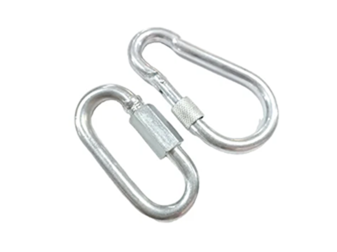set. . 25, 2024 09:28 Back to list
Guide to Choosing the Right Structural Flat Washers for Your Projects
Understanding Structural Flat Washers Importance and Applications
Structural flat washers are essential components in various engineering and construction applications. These flat, disc-shaped pieces are designed to distribute the load of a threaded fastener, such as a bolt or nut, over a larger surface area. This distribution helps to prevent damage to the material being fastened and ensures a more secure connection. Their significant role in enhancing the performance and longevity of mechanical assemblies makes them indispensable in many industries.
Design and Material
Structural flat washers typically have a large outer diameter compared to their inner diameter, which contributes to their load-bearing capabilities. They are available in various sizes, shapes, and materials, including steel, stainless steel, brass, and plastic. The choice of material often depends on the specific requirements of the application, including factors such as corrosion resistance, strength, and conductivity.
Steel washers are widely used in construction due to their high tensile strength and durability. In contrast, stainless steel washers are preferred in environments prone to moisture and chemicals, as they resist rust and corrosion. Plastic washers, while less common in heavy-load applications, are used in electrical work for their non-conductive properties.
Applications
Structural flat washers find applications across multiple sectors, from construction and manufacturing to automotive and aerospace industries. In construction, they are used to secure beams and columns, providing stability to structures. By distributing the load of bolts and facilitating even pressure, flat washers help ensure that connections remain robust under various stress conditions.
structural flat washer

In manufacturing, these washers are critical in machinery assembly, where they reduce wear and tear by preventing movement between components. Automotive applications utilize structural flat washers in engine assembly, suspension systems, and chassis builds, where reliability and safety are paramount.
Benefits
The use of structural flat washers offers several benefits. First, they enhance the load distribution, minimizing the risk of damage to the connected materials. Secondly, they prevent loosening of fasteners due to vibrations, a common issue in dynamic environments. This feature is particularly crucial in automotive and aerospace applications, where safety is a primary concern.
Furthermore, by protecting the surfaces being fastened, flat washers can extend the lifespan of both the fasteners and the materials involved. This longevity can lead to cost savings over time, making flat washers not only practical but also economical.
Conclusion
In summary, structural flat washers play a vital role in numerous applications across various industries. Their ability to distribute loads effectively, enhance stability, and prevent damage makes them crucial components in mechanical assemblies. As design requirements evolve and industries push for greater performance and safety, the importance of structural flat washers will likely continue to grow. Understanding their specifications, materials, and applications can help engineers and builders choose the right flat washer for their projects, ultimately ensuring stronger and more reliable structures.


